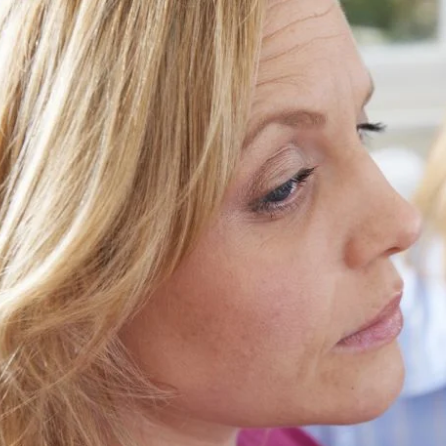What you need to know about Depression Consultation
Contents
- 1 What you need to know about Depression Consultation
- 2 What does the Procedure Involve?
- 3 How Long Should I Stay at my Destination?
- 4 What’s the Recovery Time?
- 5 What About Aftercare?
- 6 What’s the Success Rate?
- 7 Are there Alternatives to Depression Consultation?
- 8 What Should You Expect Before and After the Procedure
Depression is classified as a mood disorder and it causes a persistent feeling of sadness and lack of interest. It can impact how you think, feel, and behave, and may lead to a variety of physical and emotional problems. People experience it in different ways. It can affect your day to day life, resulting in lower productivity. It can also influence your relationships and cause some chronic health conditions.
If you feel depressed, it is important that you make an appointment to see your doctor or a mental health professional as soon as you can for depression consultation. Your doctor will be able to make an accurate depression diagnosis, determine the subtype of depression you may have, and create a treatment plan.

What does the Procedure Involve?
During depression consultation, your doctor or mental health professional will make a diagnosis based on your symptoms, psychological evaluations, physical examinations, and lab tests. A complete diagnostic evaluation may also be conducted.
Your doctor may start by evaluating your symptoms, when they started, how long you have had them, and how they were treated. In most cases, your doctor will also ask you questions about the way you feel, your thoughts, and behavior patterns, including if you experience any symptoms of depression, such as:
-
Sadness or depressed mood almost every day or most of the day
-
A sudden, significant change in weight gain
-
Change of appetite
-
Not being able to enjoy things that were once pleasurable
-
Excessive sleep or insomnia
-
Loss of energy and fatigue almost every day
-
Sense of being rundown or physical restlessness
-
Problems with making decisions or concentration
-
Feelings of excessive guilt or worthlessness or hopelessness almost every day
-
Recurring thoughts of death, a suicide plan, or suicide attempt.
You may need to fill out a questionnaire to help answer the questions.
Since depression can be linked to other health problems, physical examinations and blood tests can be a part of your depression consultation to rule out any physical condition that may be causing your symptoms. During a physical exam, your doctor may ask questions about your health, review all medications you are currently taking, and any alcohol or recreational drugs that you may be using. Then, a blood test called a complete blood count or a thyroid test will be performed to make sure that it’s functioning properly.
Besides diagnosing your condition, your doctor will also determine the particular disorder of subtype of depression that you have. For example, your doctor will determine whether you have chronic depression, major depression, seasonal affective disorder, bipolar disorder (manic depression), or some other type of clinical depression. Then, your doctor will discuss with you the appropriate treatment plan.
How Long Should I Stay at my Destination?
You should be able to leave the hospital or your doctor’s office on the same day. Your length of stay depends on your specific condition, but you usually do not have to stay any longer than you want to.
What’s the Recovery Time?
After the depression consultation itself, no recovery time is needed. You should be able to go back to your normal activities if your doctor allows you to. However, the recovery for depression can be different from one person to another. Some people may be able to recover within a few weeks or months, but for others, depression is a long-term illness.
What About Aftercare?
Your doctor may give you medicines, such as antidepressants, to treat the condition. You must take your medicine as directed. If your doctor suggests therapy, make sure to come to all of the scheduled sessions. You may also be given self-care aftercare instructions, which may include:
-
Get regular physical activities – it is recommended that you try to be active for at least 30 minutes, 3 to 5 days a week.
-
Eat healthy foods – these include fruits, vegetables, low-fat dairy products, whole-grain bread, fish, lean meats, and cooked beans. Make sure your diet is low in fat, salt, and added sugar.
-
Avoid alcohol and drugs – as they can make your depression worse.
You will need to attend follow-up visits where your doctor monitors your progress.
What’s the Success Rate?
Depression consultation is an effective way to determine whether or not you have depression. It is the first step of your depression treatment. The treatments, including medications and therapy, your doctor recommends usually have high-success rates. About 80% to 90% of people with depression eventually respond well to depression treatment.
Are there Alternatives to Depression Consultation?
If you are experiencing symptoms of depression, it is best that you see your doctor or mental health professional to get an accurate diagnosis and the best treatment plan for your specific condition. There is usually no alternative to depression consultation. However, if your doctor finds out that your symptoms are caused by other problems, they will refer you to the relevant doctor.
What Should You Expect Before and After the Procedure
Before depression consultation, you may be experiencing symptoms of depression that impacts on your ability to effectively handle day-to-day tasks and activities. After the consultation, your doctor should be able to make an accurate diagnosis and create a treatment plan for you.
For an in-depth analysis of Depression Consultation, watch this short video.
To check prices or to book a Depression Consultation, in Thailand or anywhere else in the world, head on over to MyMediTravel now!

